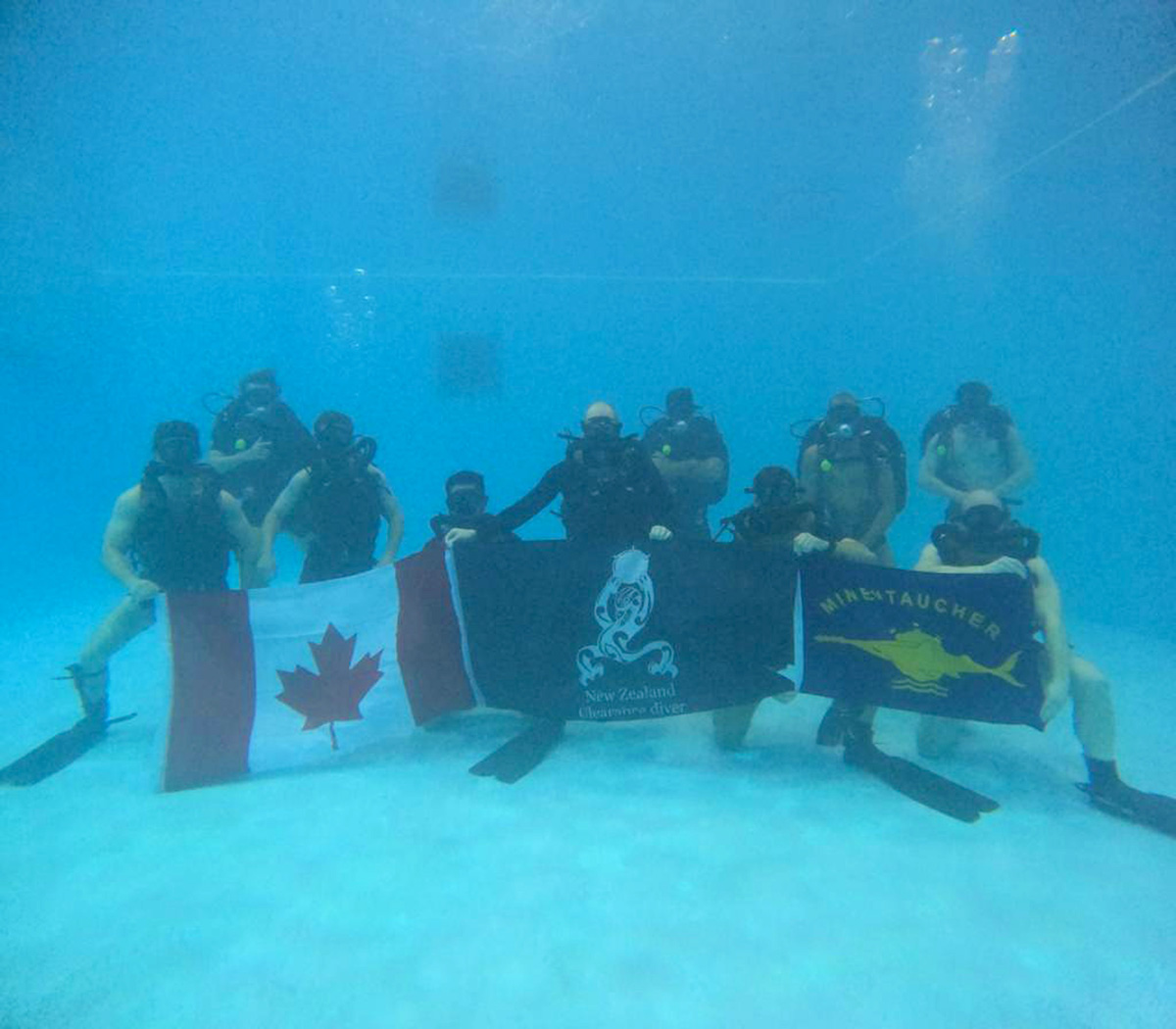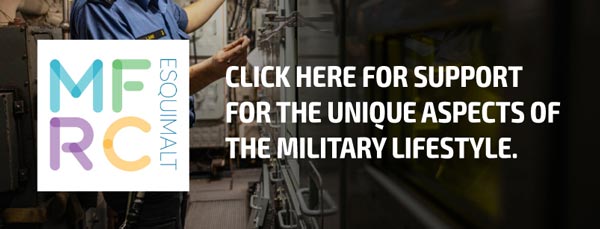
Canadian, New Zealand and German Clearance Divers take a civilian free-diving course while on secondment with the New Zealand diving team. Photo supplied
Kateryna Bandura
Lookout Editor
After completing a secondment with the Royal New Zealand Navy (RNZN)’s diving contingent, one Clearance Diver with Fleet Diving Unit (Pacific) (FDU(P)) hopes to bring back some of their emergency procedures and tactical diving oxygen rebreather (LAR-7000) training to the unit.
“The Royal New Zealand Navy Clearance Divers are top class and we can learn many things from them as we are getting our LAR training up and running,” Sailor First Class (S1) Adam Foster says.
S1 Foster completed an exchange, refered to as Operation Regulus, with the RNZN in mid-May, where he worked with various clearance diving teams. He was selected as a Clearance Diver in 2020 and began his naval career in August of that year; before that, he was an Infantry Reservist based in Vancouver.
S1 Foster’s role during the exchange was to integrate as a junior member of the RNZN Mine Counter Measure team, completing LAR-7000 Rebreather training co-hosted with German Mine Clearance Divers. LAR training consists of standard operating procedures, emergency operating procedures, shallow water pool swims, and open ocean swims to a depth of eight metres. S1 Foster says the role expanded as time passed, and the team got hands-on experience with different tasks.
Besides completing the LAR-7000 Rebreather training, S1 Foster says his favourite experience was conducting a search on a cargo ship. The team searched the ship’s hull and checked intakes and sea chests – the ships have come in with illegal importers equipped with scuba gear ready to retrieve drugs hidden in the hull.
“It’s not something we generally get to do, so it was a cool experience,” he said. “Matataua (Dive Unit) also paid for us to take a civilian free-diving course which I wasn’t expecting to get to do; it was great to learn and add something else to the toolbox.”
Exchanges such as this allow the FDU(P) to increase interoperability with nations that Canada regularly works with, S1 Foster says. Exchanges allow the flow of best practices that can lead to safer and more effective operations.
“I would like to do more apnea training as both the RNZN Operational Dive Team and German Mine Divers do quite a bit to ensure divers are comfortable underwater and understand their capabilities if they end up in a situation where they are low on or out of breathable gas,” S1 Foster said.
He feels grateful for the opportunity and hopes the Royal Canadian Navy continues sending members to get experience in a different environment.
“Staying close to our friends and allies and learning how they operate will always be a priority for us,” he says. “We have relied on each other in the past. It is likely we will again. It’s important to maintain a close connection.”





